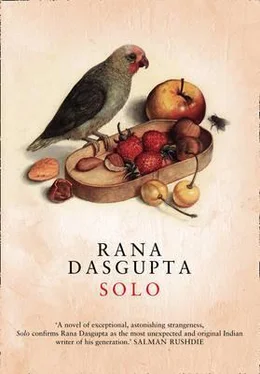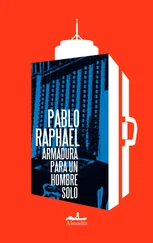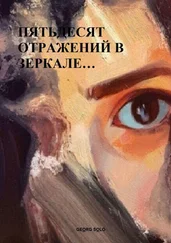It was amazing how fast the old order was swept away. People told stories openly about their previous crimes and punishments, as if they were rumours from another place. The Secret Service archives were opened, and people could see the transcripts of their old phone calls and the reports their friends had filed against them. Ulrich watched a documentary on television about the labour camps, and howled for what his dead mother had kept inside her.
He never had an instinct for politics, and now he could not even tell what kind of world he was in. They said, Now we are capitalist! — but all Ulrich could see was criminality raised up into a principle. Murderers and thieves took over and called themselves businessmen , and kept the people happy with pornography. The United Nations cut off supplies to Milosevic’s Serbia, and gleeful thick-necked Bulgarian toughs stepped in to supply the food and oil, becoming billionaires overnight. They bought TV stations, hotels and football clubs, and they adorned those necks with gold crosses the size of dinner plates.
They were former sportsmen and Secret Service men, and they had manoeuvred well through the debacle, but even they could not believe how many millions they had managed to steal. For a time they lived out in the open, and everyone could see their incredulous carnival; but then they began to die in daylight assassinations, and they retreated behind walls.
Bulgaria became Asiatic again, as it had been when Ulrich was born. Big-breasted Bulgarian singers embraced the long-suppressed Turkish and Arabic music and turned it into anthems for the new gangster society. Heroin poured in from Afghanistan. Criminal companies selected the best-looking Bulgarian girls to work in brothels in Dubai.
The world returned to war. Armenia and Azerbaijan fought. Yugoslavia fell apart. Russia razed Chechnya, trying to hold on to it. There was civil war in Georgia — with tanks firing in front of the opera house in Tbilisi, where Ulrich had gone to see Tosca with Magdalena on their honeymoon so long ago. The Americans bombed Baghdad, which his father had tried so long ago to link harmoniously to Europe with his Berlin — Baghdad railway line. People said, Now our country is open! but even if it had been possible for Ulrich to journey to the places of his life, they all seemed to be in flames. America bombed Yugoslavia, and chemicals flowed down the river into Bulgaria from the destroyed factories, and bloated corpses too.
Ulrich was reduced to absolute poverty. He could not afford the electricity in Zapaden Park, and nearly froze in the winter. He moved into a run-down building near the bus station whose hollow partitions were built against the grain, so that the windows stood half in one apartment, half in another.
He left behind many of his possessions. He could not transport the great volume of his chemistry books.
He brought some paving slabs into the new place, and built a fireplace under the chimney. In the winter, he collected bits of packing crate from the street to make a fire with, which blazed up in an instant, searing the room, and burned out without leaving any warmth.
He began to forage for food, but he moved slowly, and the competitive hordes were energetic and desperate. Even the young could not make it, and many of them left the city in the hope of sustaining themselves on a bit of chemical land. Ulrich sat in doorways, trying to preserve his energy, and he watched the drunk children and the women praying for miracles. There were stains on the pavements from where the people slept, and sometimes there were corpses in the morning.
One afternoon, Ulrich collapsed while trying to open his front door, and was taken in by his neighbours. That was when they began to give him money.
For weeks afterwards, he lay curled up on his bed, unable to think or move. He spent all night trying in vain to sleep, and groaned when he heard the first clatter of morning water in the pipes.
He leaned his head against the wall, which was like a great membrane capturing the sounds of the building. Conversations in other apartments came through as indistinct reverberation. Music, sometimes, and telephone rings. It was rainy, and at night the wall groaned with damp distension. Wet patches spread with clicks as molecules found new space, and the plaster ballooned.
In the afternoons, the air warmed up. The damp paint, hanging off in curled butterfly wings, dried out with the sun; crackled, and fell, finally, to the floor.
Ulrich’s heartbeat slowed, and his pressure dropped inside. He was tired, and his daydreams were not enough to keep out the news stories.
The national airline, Balkan Airlines, sent its air hostesses to pose nude for Playboy in order to save itself from bankruptcy. The Kremikovtsi steelworks were sold to an American company for one dollar.
The new leaders incinerated the communist mummy of Georgi Dimitrov, and decided to demolish his tomb, which had already become a glowering affront to the nobility of their new capitalism. Great crowds came to watch the mausoleum come down, while the prime minister surveyed the solemn proceedings from behind his office curtains. The country’s leading explosives experts came in clean uniforms to lay down their dynamite. With a magnificent lack of humour, they signalled their readiness, and everyone prepared themselves for the house of spirits to evaporate.
The explosion was so massive that the speakers crackled on Ulrich’s rickety television. People ducked and covered their eyes; the surrounding windows were blown out, and great cracks streaked across the stone square. But as the smoke cleared, the crowds burst into laughter — and even Ulrich laughed in his solitude. For the mausoleum stood indifferent, entirely unharmed. The experienced experts set more explosives, and still nothing happened. They claimed a technical hitch, and tried a third time. But still it would not fall. They packed up and went home, and returned after dark, with pickaxes. That was what it was to live in flimsier times, with the past simply too well made.
There was a knock at Ulrich’s door one day, and government agents asked for Elizaveta, who was twenty years dead. They carried a parcel containing her jewellery, a gold crucifix, an oil painting of the Blue Mosque in Tabriz, and a series of framed prints of the Ringstrasse in Vienna. These objects had been held in a vault for close on half a century, and now they were fastidiously returned.
This miraculous event contradicted everything Ulrich thought he knew, and he felt he had lived too long. He had seen the statues pulled down too many times — this time they were putting up shrines to Ronald Reagan — and everyone around him had passed away. He was living in the aftertimes, whose rules he did not understand. Forty or fifty years, he thought, were enough for a modern life, for the human frame could not hold up if the world was destroyed too many times and made again.
He was forced to sell all his mother’s valuables, and his gold watch too. He resented the smugness of the owner of the antique shop, who accepted these things with so little emotion. The shop was piled high with painted wooden icons, china horses, military decorations, sports trophies, stamp collections and old spectacles. There were boxes full of yellowed postcards sent from the Black Sea. The place swelled with the lives that were deposited there.
Till the very end, Ulrich had sustained the hope that there would be someone for him to bequeath his gold watch to.
Ulrich’s life had become minimal. He rarely left his tiny apartment and he had little to do. There was no telephone in his apartment, and the list of his possessions was short. He did not even cook his meals any more. He produced nothing at all. He spent some time every day making lists of the things he threw out. He listed toothpaste tubes, exhausted pens and sachets of coffee, and he found there some signature of his remaining significance.
Читать дальше
Конец ознакомительного отрывка
Купить книгу












